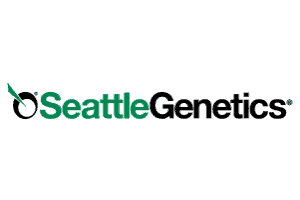
Seattle Genetics and partner Astellas have reported positive results from an early clinical trial of their antibody drug conjugate Padcev in combination with Merck & Co/MSD’s Keytruda in first-line bladder cancer.
At the tail-end of last year, Seattle and Astellas scored US approval for Padcev (enfortumab vedotin) for the treatment of locally-advanced or metastatic urothelial carcinoma – the most common form of bladder cancer.
Padcev is made up of an antibody targeting Nectin-4, a cell surface protein which is highly expressed in bladder cancer, with a drug that kills the cancer cell – monomethyl auristatin E.
It was indicated for use only in adults who have previously been treated with chemotherapy, as well as immunotherapy with a PD-1/PD-L1 inhibitor, such as Keytruda (pembrolizumab).
Now, Seattle and Astellas are looking to expand the use of the ADC into earlier lines of therapy, and they are making their case for a combination therapy of the drug.
The initial results from the phase 1b/2 EV-103 trial were presented at ESMO back in September, which involved 45 metastatic urothelial cancer patients who were previously untreated and were ineligible for cisplatin based chemotherapy.
This most recent update revealed that the Padcev/Keytruda combination shrank tumours in the majority of patients, with an objective response rate of 73.3% after a median follow-up of 11.5 months. Out of those who experienced ORR, 15.6% experienced a completed response and 57.8% of patients experienced a partial response.
On top of that, the median progression-free survival was 12.3 months and the 12-month overall survival (OS) rate was 81.6%, although median OS had not yet been reached.
Keytruda won approval for first-line bladder cancer on the back of its KEYNOTE-052 trial, which demonstrated an ORR of 29% in 310 patients, with 7% experiencing a complete response and 22% partial responses. In comparison, the Padcev combination seems to top Keytruda alone, at least with this updated early-stage data.
According to Seattle, the safety and tolerability of the combination treatment was manageable, although 58% of patients experienced a treatment-related adverse event greater than or equal to grade 3. However, none of the adverse events of clinical interest were greater than grade 5.
“These updated data are encouraging and provide support for the recently initiated phase 3 trial EV-302 that includes an arm evaluating Padcev in this platinum-free combination in the first-line setting,” said Roger Dansey, chief medical officer at Seattle Genetics.
Padcev is Seattle’s second marketed drug after its lymphoma therapy Adcetris (brentuximab vedotin), which is expanding its business into the solid tumour category.




